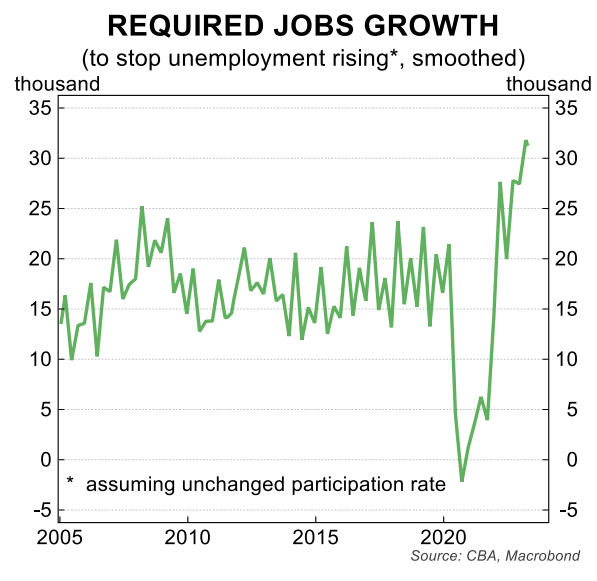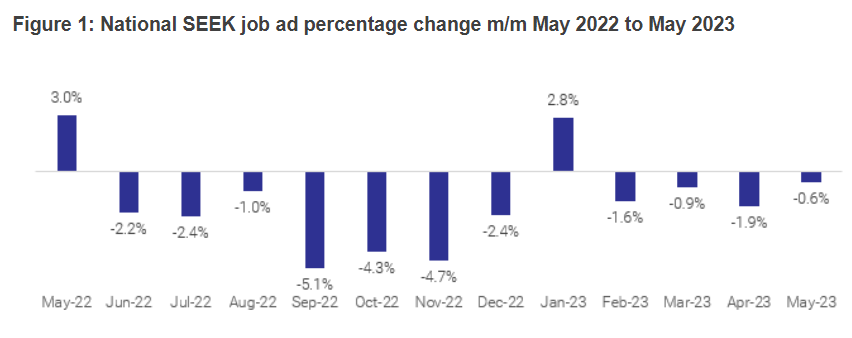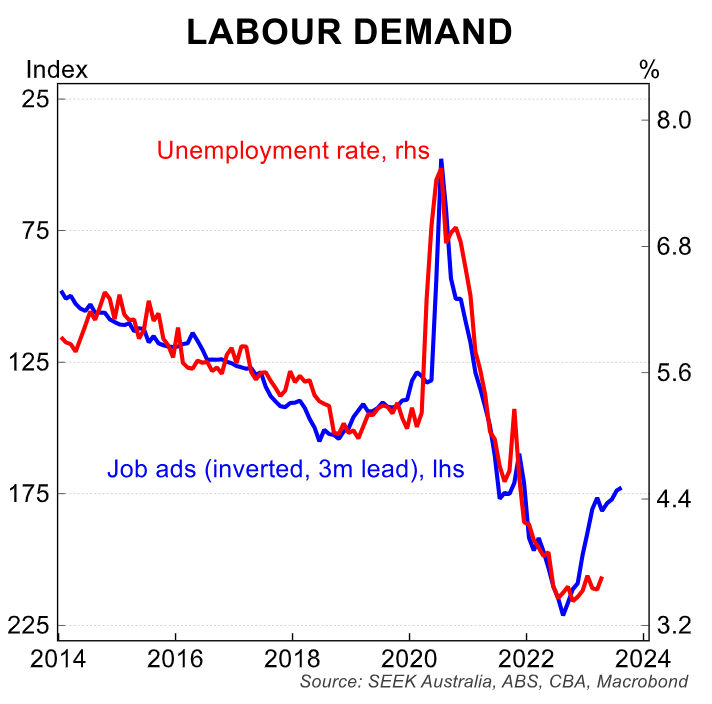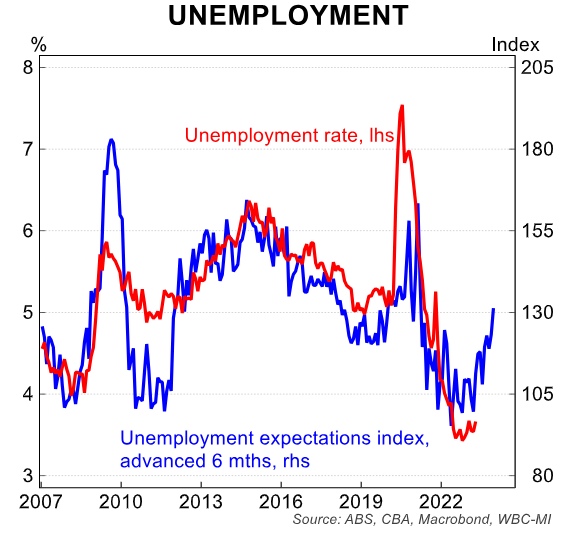One of the biggest headwinds facing the jobs market is the record volumes of migrants flooding into Australia.
The federal budget projected that a record 400,000 net overseas migrants would arrive in Australia this financial year, followed by 315,000 in 2023-24.
In turn, Australia’s labour supply is growing at an unprecedented rate, with CBA estimating that Australian needs to generate 32,000 jobs a month just to keep the unemployment rate steady:

The latest SEEK employment report shows that job ads fell another 0.6% in May to be down 22.0% year-on-year:

As you can see above, job ads have fallen in 11 of the past 12 months.
More worryingly, the number of applications per job ad soared 4.8% from the month prior and are now only 1% lower than May 2019.
This reflects more workers via immigration chasing fewer jobs.
The next chart from CBA is a month old, but illustrates the surge in applications per job ad:

Moreover, the SEEK job ads index has historically been a good leading indicator for the unemployment rate:

This week’s Westpac consumer sentiment survey also showed a sharp deterioration in job expectations, which points to rising unemployment in the months ahead:

Much like GDP, Australia’s employment pie has grown strongly via immigration, but not by enough to soak up the record numbers of new workers.
As a result, the unprecedented growth in the labour supply is outpacing the growth in labour demand, which will result in higher unemployment and underemployment.
Australia is the textbook definition of a quantitative peopling ponzi economy that prioritises headline growth over per capita outcomes.
Australia’s jobs market can’t absorb Albo’s record immigration and wage growth is going to crater.

